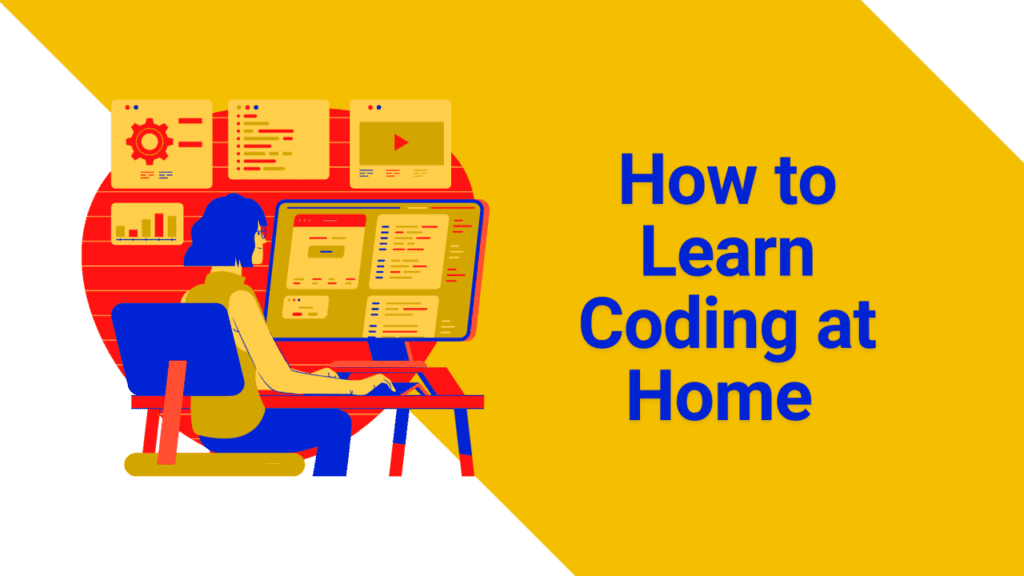Learning coding at home can be highly effective with a structured approach. Start by choosing a programming language that aligns with your goals, such as Python for general purposes, JavaScript for web development, or Java for more complex applications. Utilize free online resources like Codecademy, Coursera, or Khan Academy to get started with interactive lessons and tutorials. Supplement your learning with YouTube tutorials and coding practice sites like LeetCode or HackerRank. Join online coding communities on platforms like Reddit or Stack Overflow to ask questions and engage with other learners. Consistently practice by working on small projects, gradually increasing their complexity as you gain confidence and skills.

Why Learn Coding at Home?
- Flexibility: Learn at your own pace and on your own schedule, fitting coding lessons around other commitments.
- Cost-effective: Access numerous free or affordable online resources, avoiding the high costs of formal education.
- Customization: Tailor your learning path to focus on the languages and skills most relevant to your personal or professional goals.
- Accessibility: Utilize a wealth of online tutorials, forums, and coding communities for support and knowledge-sharing.
- Practical Experience: Work on real-world projects and build a portfolio from the comfort of your home, showcasing your skills to potential employers.
- Continuous Learning: Stay updated with the latest technologies and trends in the coding world without being bound to a fixed curriculum.
- Career Opportunities: Open doors to remote job opportunities, freelancing, or starting your own tech business.
Setting Up Your Learning Environment
- Designate a Workspace: Choose a quiet, distraction-free area for studying.
- Reliable Computer: Ensure you have a computer with adequate processing power and memory.
- Stable Internet Connection: A strong internet connection is crucial for accessing online resources and tutorials.
- Install Software: Set up code editors (e.g., Visual Studio Code, Sublime Text), version control systems (e.g., Git), and necessary programming languages or frameworks.
- Organize Digital Workspace: Create folders and files for projects and use platforms like GitHub for version control and collaboration.
- Gather Resources: Collect textbooks, online courses, and tutorials to support your learning.
- Regular Study Schedule: Establish and stick to a consistent study routine.
- Motivational Elements: Set coding challenges and goals to stay inspired and on track
Free Online Resources for Learning Coding
- Codecademy: Interactive courses on various programming languages and technologies.
- Coursera: Free courses from top universities and institutions on a wide range of programming topics.
- edX: Access to free coding courses from leading universities and companies.
- Khan Academy: Beginner-friendly programming tutorials and exercises.
- freeCodeCamp: Comprehensive coding curriculum with hands-on projects and certifications.
- MIT OpenCourseWare: Free course materials from MIT’s computer science classes.
- YouTube: Channels like Traversy Media, The Net Ninja, and freeCodeCamp offer coding tutorials and walkthroughs.
- LeetCode: Practice coding problems and algorithms with a supportive community.
- HackerRank: Coding challenges and competitions to improve your skills.
- GitHub: Explore open-source projects and collaborate with other developers.
Practicing Your Coding Skills
- Coding Challenges: Use platforms like LeetCode, HackerRank, and Codewars to solve problems and practice algorithms.
- Small Projects: Develop personal projects such as websites, games, or apps to apply your skills.
- Open-Source Contribution: Participate in open-source projects on GitHub for collaboration experience.
- Community Engagement: Join coding forums like Stack Overflow and Reddit to exchange knowledge and seek advice.
- Consistent Practice: Allocate regular time for coding practice to build and maintain your skills.
- Coding Journal: Keep a journal to track your progress, document lessons learned, and identify improvement areas.
Conclusion
Learning to code at home is a rewarding journey that offers flexibility, affordability, and the opportunity to tailor your education to your personal goals. By setting up an effective learning environment, utilizing a variety of free online resources, and regularly practicing your coding skills, you can build a solid foundation in programming. Engaging with coding communities and contributing to open-source projects further enhances your learning experience. With dedication and consistent effort, you can achieve proficiency in coding and unlock numerous career opportunities in the tech industry.
FAQs
Q: 1 What programming language should I start with?
Ans:: Start with a language that suits your goals. Python is great for beginners and versatile for various applications like web development, data analysis, and automation. JavaScript is essential for web development, and Java or C# are good for building enterprise-level applications.
Q: 2 How much time should I dedicate to learning coding each day?
Ans: The amount of time can vary depending on your schedule, but aiming for at least an hour a day can provide consistent progress. More intensive study, like 2-3 hours, can lead to faster skill acquisition, especially when learning the basics.
Q:3 Do I need a strong background in math to learn coding?
Ans: While certain areas of programming, such as data science or game development, may require a good understanding of math, many coding tasks do not. Basic problem-solving skills are often sufficient for most programming needs, especially in web development and general software applications.
Q: 4What are the best online platforms to learn coding for free?
Ans: Platforms like Codecademy, freeCodeCamp, and Khan Academy offer free courses that are ideal for beginners. Coursera and edX also provide free courses from universities, though a fee may be required for official certification.






